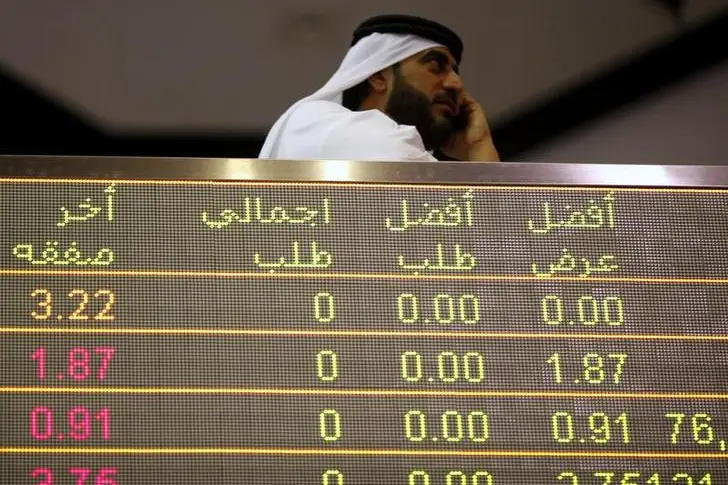PHOTO
Next year is expected to offer better opportunities for the value and cyclical end of the equity market, David Lewis, Fund Manager at London-based Jupiter Asset Management, told Zawya.
“We certainly feel that 2020 could be the year for value-oriented areas outperforming the more growth-oriented areas which have done extremely well so far this year,” Lewis said.
Leading economic indicators like purchasing managers’ indices may have bottomed out globally around August–September 2019, a possible sign that we are moving to a new market cycle, according to Lewis.
In China, the Caixin/Markit Manufacturing Purchasing Managers’ Index rose to 51.8 in November from 51.7 in October, marking the fastest expansion since December 2016, when it was 51.9. The data recorded was 50.4 in August and 51.4 in September.
PMI readings above 50 indicate expansion, while those below signal contraction.
In the United States, the Institute for Supply Management’s Purchasing Managers’ Index recorded 49.1, 47.8, 48.3 and 48.1 in August, September, October and November, respectively.
“We believe that if economic data is bottoming somewhat then that means we are thinking about positioning our portfolios in a more risk-own manner, so we’re increasing equities and also taking more exposure to the more value, more cyclical end of the equity market,” Lewis said. He added that Jupiter will not move their portfolios dramatically but will change the tilt from significantly overweight growth assets to more balanced positions.
TOP INDUSTRIES/GEOGRAPHIES
If we see a continued rebound in economic data, Lewis said, industrials could be a key area showing improvement, and energy and materials could benefit to a lesser extent as well.
“Part of the reason the US has done well is because the dollar has done well, but also because growth-oriented companies (the Amazons, Facebooks and Googles of the world), have been the place to be,” Lewis said.
If the industrial areas start being the leaders of markets, such as in Europe, Japan and the UK, which have a higher percentage of those types of companies, leadership could move away from the US, he added.
BREXIT AND UK OPPORTUNITIES
Back in November, Lewis told Zawya that he sees significant opportunities in the UK as the country has languished for a number of years in a “limbo” of uncertainty.
“We believe that UK is unloved because of Brexit, so if you get some type of positive resolution out of Brexit, that could be good for UK assets generally, it could also be positive for the [pound] sterling,” Lewis said.
A positive resolution, according to Lewis, is any resolution that removes the uncertainty. Britain’s Prime Minister Boris Johnson and the Conservative party won the UK elections on December 12 on a pro-Brexit platform.
US-CHINA TRADE TENSIONS TO CONTINUE?
Trade tensions between the United States and China have had a big impact on markets this year.
On Friday December 14, the US and China agreed on the terms of a “phase one” trade deal that reduces some US tariffs on Chinese goods while boosting Chinese purchases of American farm, energy and manufactured goods and addressing US complaints about intellectual property practices.
Lewis told Zawya that if the two biggest economies in the world agree on a “phase one deal”, that would certainly be a positive for markets and sentiment. “However, our medium to longer term view is that we expect wrangling between China and the US to carry on for some time, because this is not just about trade; this is a discussion between the two preeminent powers in the world,” Lewis said.
“Our view is that it is likely to carry on producing volatility in markets, and we have focused our portfolios on active fund managers, so any type of volatility has a potential to throw up good opportunities for active managers to buy shares at depressed prices,” he added.
EMERGING MARKETS AND THE GREENBACK
Emerging markets tend to struggle when the US dollar is strong. One of the reasons is that a rising dollar will cause an equal rise in the local currency cost of servicing dollar-denominated debt, which emerging markets tend to carry a lot of. On the other hand, if the dollar depreciates, it will have a positive effect on emerging markets assets.
Lewis said that if the big internet giants draw less capital than they have in the past while industrial companies in Europe and Japan draw more capital, “then that could take away one of the pillars that has kept the dollar strong over recent years,” and a weakening dollar “ would be positive for emerging markets.”
(Writing by Gerard Aoun; editing by Daniel Luiz)
Disclaimer: This article is provided for informational purposes only. The content does not provide tax, legal or investment advice or opinion regarding the suitability, value or profitability of any particular security, portfolio or investment strategy. Read our full disclaimer policy here.
© ZAWYA 2019




















